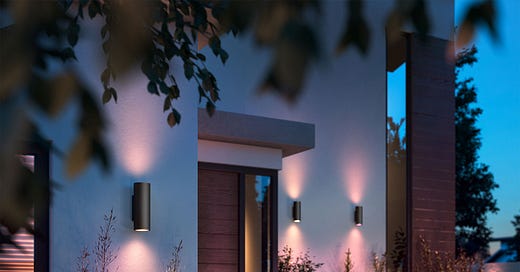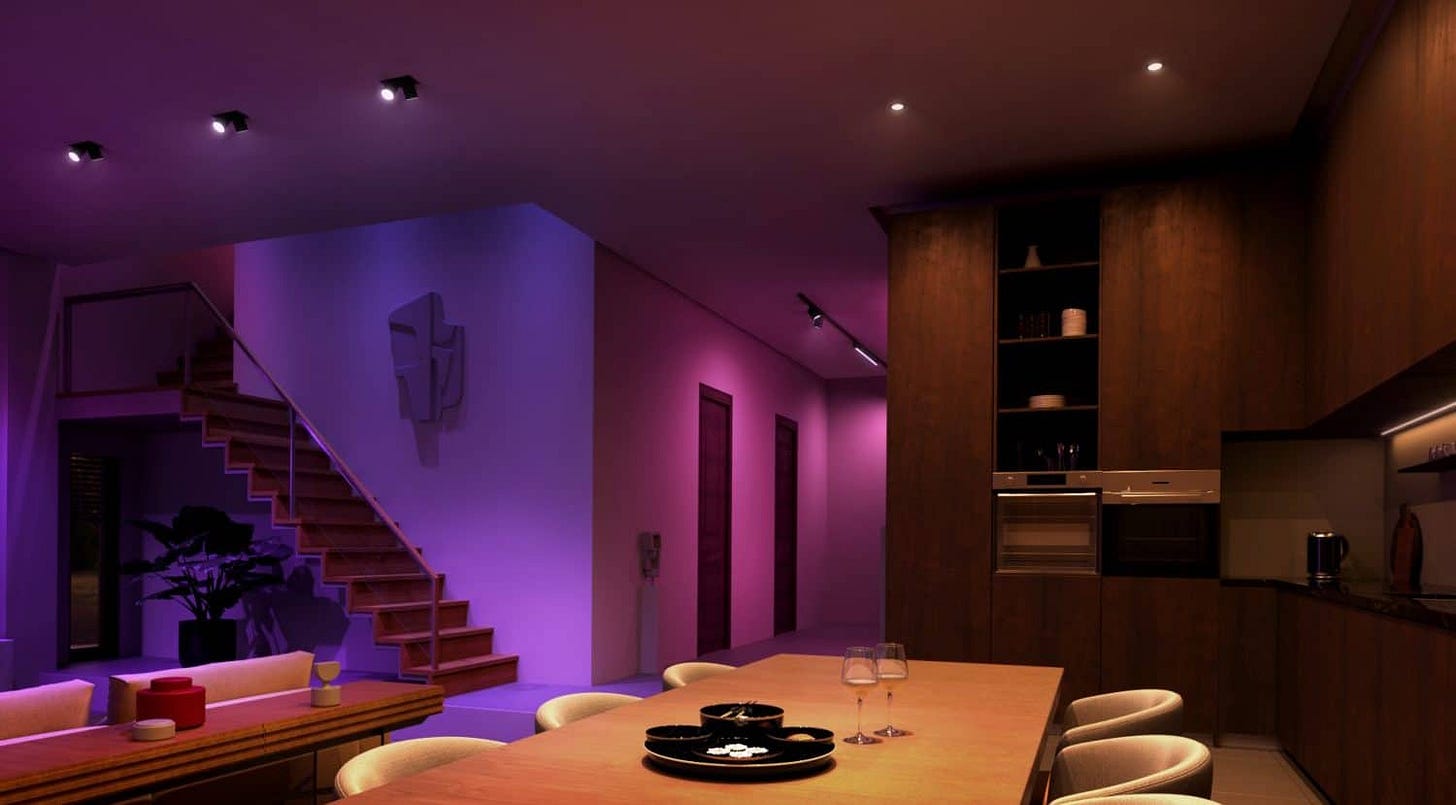Are Philips Hue bulbs still the smartest way to light your home?
Am I too invested in their ecosystem to change even if they're not?
Smart light bulbs can be the gateway into the smart home life for many people.
I recall purchase my first Philips Hue Smart bulbs for my tiny San Francisco apartment. It was one of the easiest smart home improvements that you could make if you were a renter, and if you weren't all that handy around the house. Anyone can change a lightbulb right?
In the years that have passed, I've moved to other homes but the Hue lightbulbs always make the journey with me to the next dwelling. And of course, they get joined by new bulbs and fixtures, and dimmer switches, light strips, etc.
My smart light collection has really grown over the years. I'm proud (or maybe mildly embarrassed) to say that nearly every source of light in my current home comes from a Philips Hue bulb or fixture. And while I've been mostly pleased with my experience, it certainly has me wondering if this is still the right path forward. Are the folks at Philips still making the best products? Does it even matter if I'm so invested in the product? Have they suckered a whole generation of nerds like me into thinking that there are no other options?
Pros
Well, to start, Philips has made some improvements to their Hue line. They've added tons of new shapes and designs for both bulbs and fixtures. When I first setup those initial lamps, I basically only had the option of a standard bulb. Then it was a big deal to choose a standard bulb that could display various shades of whites and yellows or a super bulb that could display all the colors of the rainbow.
And for a while, there were just some styles that couldn't be replicated by a Hue light. Until, they were able to start selling recessed ceiling lights and outdoor fixtures that could properly stand up to the elements. Now, we've gotten to the point where really any lighting need can be fulfilled by a Philips Hue bulb. You're just going to have to pay for it.
Cons
These lights are expensive and there really is no way around it. Some lights in my collection have come secondhand from eBay or local sellers on Craigslist. But a bulk of them have been purchased at their retail price directly from the brand. Some models are easier to find online while others can only be bought from the Philips website.
And while Philips was essentially the first mover in this space, there are now other options that can deliver pretty much the same functionality at a fraction of the price. Then there is the choice between buying a fancy Hue-powered light fixture or just getting a standard fixture and maybe screwing in a Hue bulb. You can crunch the numbers every which way but it still ends up being way more expensive than a standard LED bulb and noticeably more pricey than smart bulb competitors.
The Future
So as I embark on my plan to redesign my home office. I'm asking myself the question, do I need to keep adding these lights? Will it bother me too much to have 99% of my lights controllable in one app and then need another app for those last few stragglers? Are these all just silly questions and I should dedicate my brain power to more pressing needs? I guess the answers to these questions would be no, yes, yes, yes.
Feel free to educate me in the comments or reply if you have a better solution. I do know that there are smart bulbs from companies that can play nice with each other within 3rd party apps. Even today, I go back and forth between controlling lights right in the Phillips Hue App and sometimes in the Google Home App. They both have their pros and cons.
I am pretty well aware of the competition and one of the new digital skylights from Nanoleaf is getting strong consideration to provide some artificial natural light in my new workspace. In the coming weeks, I should have a better idea of the final layout of the space and exactly what kind of lighting I'll need. I think there will be some new Philips Hue lights installed, but other options will still be considered.
Let's face it, Philips is another big corporation that has made a lot of money by getting you to buy into an ecosystem. It's not unlike Apple, Google, Amazon, or a host of other tech giants. Just who could have guessed that something as simple as turning on the lights would prove to be such a modern predicament?
Thanks for reading, I’ll see you next week!
Hey! Could you use some help establishing healthy habits? Do you have a big project or new business that you want to get off the ground but could use some advice? Maybe you could benefit from hiring me as your coach. If you’re interested, read more about my coaching services here, or go ahead and book some time on my calendar to discuss further.
Iterate is free today. But if you enjoyed this post, you should let me know that this writing is valuable by pledging a future subscription. You won't be charged unless I enable payments at some point in the future. Think of it like an IOU in a tip jar.





